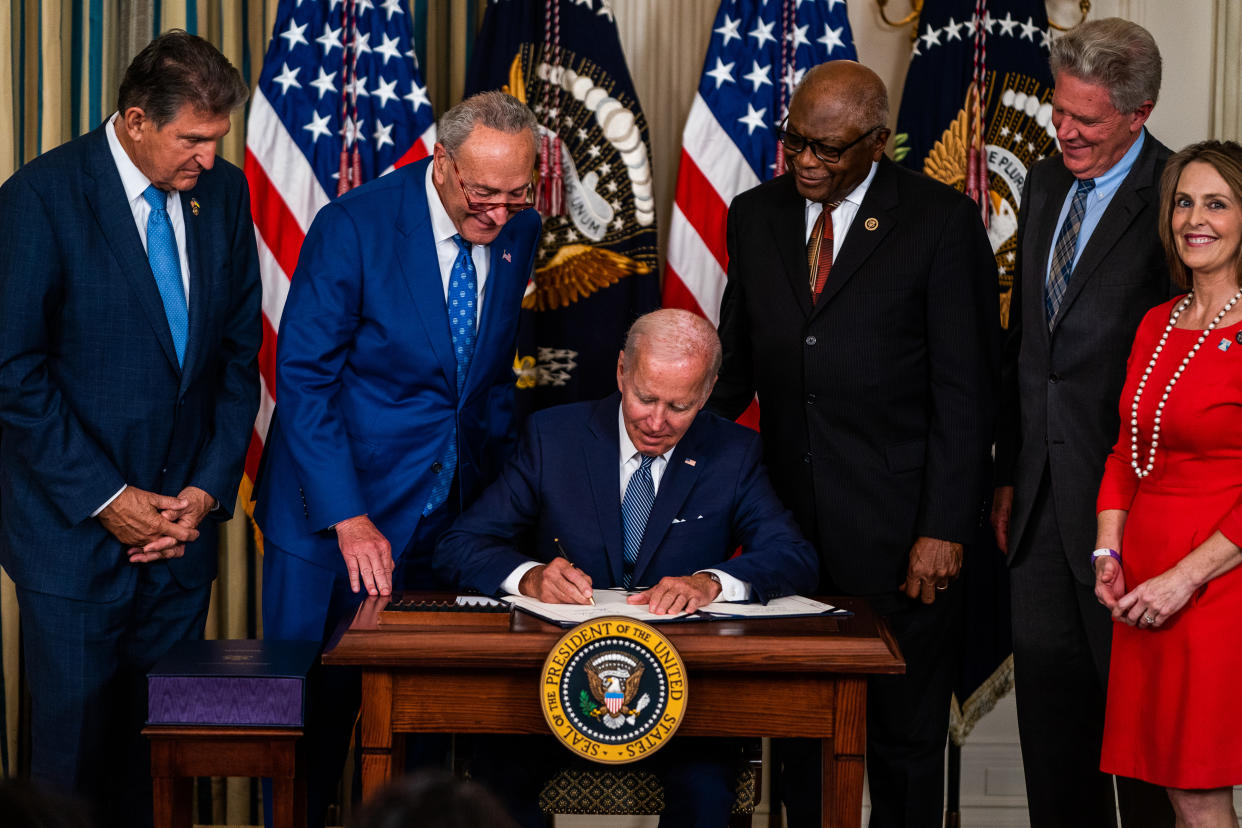Social Security just passed Medicare as the government's most pressing insolvency risk
Social Security has now passed Medicare as the most pressing insolvency risk among the twin pillars of America's social safety net, according to new government reports. But both programs are still on pace to run dry next decade.
The 2024 Social Security and Medicare Trustees Reports, however, did offer a glimmer of good news for Social Security and a jolt of good news for Medicare.
Social Security's key reserve is projected to run low first, in just nine years' time. By 2033 — the same annual deadline as last year's estimate — the program may only be able to pay out 79% of benefits to seniors unless lawmakers act.
A short reprieve until 2035 might be possible if a second Social Security fund is factored in but that would require a change in the law. Last year's report saw that hypothetical combined fund running low slightly earlier, in 2034.
The news for Medicare, meanwhile, was strikingly positive. A stronger-than-expected economy and moderating healthcare costs could keep that program solvent until 2036.
That's a jump of five years from estimates of where the program stood last year. Just two years ago there was a fear of that program running low as early as 2028.

As Maya MacGuineas, the president of the Committee for a Responsible Federal Budget, summarized it: "We’re less than a decade away from a massive solvency crisis that would slash benefits for over 67 million seniors and severely limit their access to health care soon after."
The annual report from the program's trustees — Treasury Secretary Janet Yellen, HHS Secretary Xavier Becerra, Acting Labor Secretary Julie Su, and Social Security Commissioner Martin O'Malley — also implored Capitol Hill lawmakers to take action to shore up both programs, as insolvency and reduced benefits are still potentially in the offing.
Commissioner O'Malley added that actions are needed to give peace of mind to Social Security's nearly 70 million beneficiaries and more than 180 million workers and their families who contribute to the program through their payroll taxes.
What drove the changing estimates
The good news for the Medicare program was largely a result of the strong economy and changing healthcare industry as some costs lessen and are set to ease some pressure on consumers and on Medicare's balance sheet in the years ahead.
On Monday, Biden aides focused on the good news for the program and actions the president has taken in recent years that they say have helped the program extend its solvency.
One major helper, according to the report, is a stronger balance sheet for Medicare Advantage, which provides coverage through private health insurance companies.
New rules around prescription drug prices have also helped.
The Inflation Reduction Act, signed into law by Biden in August 2022, made a series of reforms to Medicare. Most notably, it allowed the program to negotiate directly with drug manufacturers for the first time to lower the price of some prescription drugs.

These cost savings are set to begin being felt in the years ahead and are contributing to the strengthening outlook, according to the report.
"Since I took office, my economic plan and strong recovery from the pandemic have helped extend Medicare solvency by a decade," President Biden touted in a statement.
The less dramatic positive developments on Social Security came thanks to improvements in the program's Disability Insurance Trust Fund, which the report says was driven by an increase in estimates of labor productivity and the overall economy in coming years paired with projected lower disability rates. That secondary fund could be solvent on its own through 2098.
But if it is combined with the main Social Security fund — the larger Old-Age and Survivors Insurance (OASI) Trust Fund — that's a move could extend overall Social Security solvency until 2035.
Combining the two funds would require a change in the law, but Commissioner O'Malley focused on 2035 as the key deadline Monday.
"This year's report is a measure of good news," he said in his statement, promising "any potential benefit reduction event has been pushed off from 2034 to 2035."
Will lawmakers act?
Monday's report underscored the long-term shortfalls facing both Social Security and Medicare. And it's an issue that has been only sporadically debated on Capitol Hill or on the campaign trail over the last year.
On Capitol Hill, a flurry of activity to reform Social Security in the spring of 2023 soon gave way to gridlock by last summer with bipartisan talks to find a solution on ice — all sides agree — until after the 2024 election at least.
"Today’s Social Security Trustees report marks yet another year of inaction by lawmakers to protect this crucial program on which so many Americans depend," says former Social Security official Jason Fichtner who is now at the Bipartisan Policy Center.
"Leading voices on both sides of the aisle have buried their heads in the sand," he added.
Likewise, the two parties' presumptive presidential nominees have weighed in with only a few specifics of their plans if they win in November.
President Biden recently released budget documents that offered a call for tax increases on the richest Americans to shore up Social Security as Donald Trump recently floated possible entitlement "cutting" in a CNBC interview if he is elected.
Nonpartisan experts often stress any bipartisan Social Security deal to extend solvency will almost certainly require a combination of both tax increases and benefit reductions.
The issue at the moment is that any increase in taxes is anathema to Republicans, while benefit reductions, even extending the retirement age, are currently rejected out of hand by Democrats.
This post has been updated.
Ben Werschkul is Washington correspondent for Yahoo Finance.
Click here for politics news related to business and money
Read the latest financial and business news from Yahoo Finance
